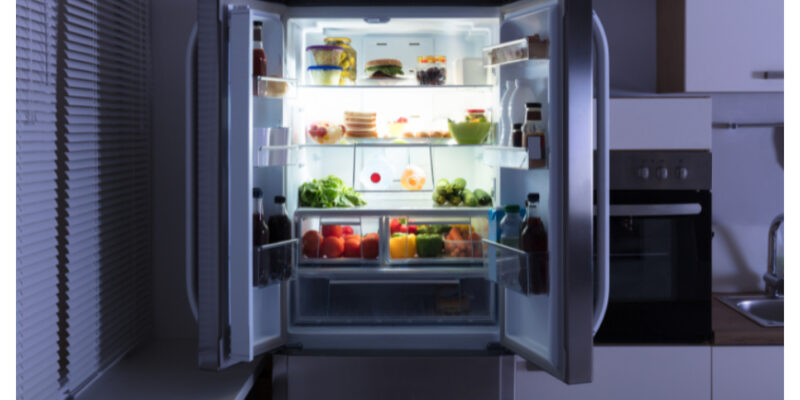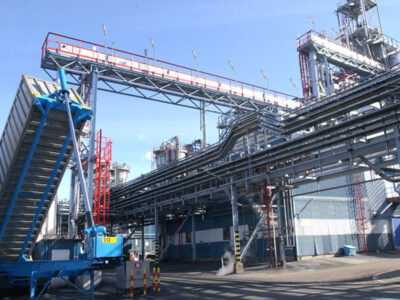Storing food correctly is essential for maintaining its freshness, taste, and safety. While refrigeration helps extend the lifespan of many ingredients, some items deteriorate faster when kept in cold conditions. Given Singapore’s humid climate, it may seem logical to refrigerate everything, but this can sometimes do more harm than good. Certain foods lose flavour, texture, or nutritional value when exposed to low temperatures, making proper storage a crucial consideration. Understanding which items should stay out of the fridge in Singapore will help prevent spoilage and waste while preserving the quality of your food.
Tropical Fruits and Bananas
Many tropical fruits thrive in warm environments, so refrigerating them can negatively impact their flavour and texture. Fruits such as mangoes, pineapples, and papayas ripen at room temperature. Cold air slows down the ripening process, which can lead to an altered taste or a mealy consistency.
Bananas, in particular, suffer in a refrigerator. The low temperature darkens the peel, creating an unappealing appearance while affecting the fruit’s sweetness. Once bananas ripen, they can be stored in the fridge if necessary, but unripe ones should remain outside to avoid an unpleasant texture. Instead of using a fridge in Singapore, storing tropical fruits in a cool, shaded area allows them to ripen while maintaining their flavour and nutrients.
Potatoes and Onions
Potatoes require proper ventilation and a stable environment to prevent spoilage. When placed in a refrigerator in Singapore, the cold temperature converts starch into sugar, resulting in an undesirable sweet taste and a gritty texture. This change affects the quality of dishes where potatoes play a key role, such as mashed or roasted preparations. To maintain their integrity, potatoes should be kept in a dark, dry place with good airflow.
Onions also suffer from refrigeration. The humidity inside a fridge in Singapore encourages mould growth and can cause them to become soft and mushy. When stored in a cold environment, onions absorb moisture, which accelerates spoilage. A dry, ventilated space prevents sprouting and ensures they stay fresh for a longer period.
Bread and Baked Goods
Many assume that refrigeration extends the lifespan of bread and baked goods, but cold air causes them to dry out faster. The starch in bread undergoes changes when exposed to low temperatures, leading to a tough, stale texture. Instead of keeping bread in a refrigerator in Singapore, storing it in an airtight container at room temperature preserves its softness longer. If long-term storage is necessary, freezing is a better option, as it prevents staleness without altering texture.
Cakes, pastries, and other baked goods containing cream or custard should be refrigerated, but those without dairy-based fillings stay fresh outside or on your dining table. Refrigeration affects their texture, causing them to harden prematurely. Storing these items in a cool, dry place ensures they remain moist and flavourful.
Honey and Coffee
Honey is naturally resistant to bacteria and does not require refrigeration. Storing it in a fridge in Singapore causes crystallisation, making it difficult to use. Over time, honey thickens into a grainy texture, requiring reheating to return it to a liquid state. Keeping it in a tightly sealed container at room temperature preserves its quality and consistency.
Coffee, whether in bean or ground form, should also be kept away from refrigeration. The fluctuating temperatures inside a fridge create condensation, which affects the beans’ flavour and aroma. Moisture exposure accelerates spoilage and diminishes the quality of brewed coffee. Storing coffee in an airtight container in a cool, dry cupboard maintains its freshness for longer.
Garlic and Tomatoes
Garlic bulbs require air circulation to prevent mould growth. Refrigeration traps moisture, causing garlic to soften and deteriorate quickly. A well-ventilated storage space prevents sprouting and ensures it remains fresh. Once peeled or chopped, garlic should be in an airtight container in the fridge, but whole bulbs last longer outside.
Tomatoes also react poorly to refrigeration. Cold air affects their texture, making them mealy and reducing their natural sweetness. When stored in a fridge in Singapore, tomatoes lose their vibrant flavour and develop a dull taste. Instead of refrigeration, keeping them in a bowl at room temperature allows them to ripen properly, resulting in better-tasting produce.
Storing food plays a vital role in maintaining freshness and preventing unnecessary waste. While a refrigerator in Singapore is essential for preserving perishable items, some foods deteriorate when exposed to cold temperatures. Understanding which ingredients should remain outside helps maintain their flavour, texture, and shelf life. By following proper storage practices, you can ensure that your food stays in the best possible condition.
Have questions about the right refrigerator for your needs? Contact Harvey Norman Singapore today for expert guidance and quality appliances.








Comments